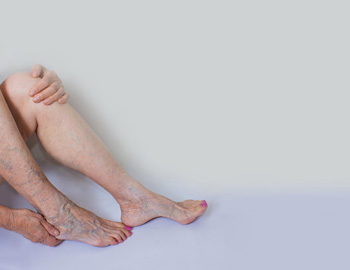
 A plantar wart differs from other warts because it is found on the heel of the foot. It is known to grow inward as a result of pressure that is put on the heel while walking and can cause severe pain and discomfort. This type of wart is considered to be contagious, and it is suggested to speak to your child about refraining from sharing shoes and towels. It appears as a small, hardened area of skin, and may have black dots in the center. If the wart begins to spread or causes chronic pain, it is suggested that you speak to a podiatrist who can recommend effective methods of treatments. These may include applying prescribed medication, or possibly injecting the site with specific medicine. It is strongly recommended that your child keep all follow-up appointments, which may aid in attaining a complete recovery.
A plantar wart differs from other warts because it is found on the heel of the foot. It is known to grow inward as a result of pressure that is put on the heel while walking and can cause severe pain and discomfort. This type of wart is considered to be contagious, and it is suggested to speak to your child about refraining from sharing shoes and towels. It appears as a small, hardened area of skin, and may have black dots in the center. If the wart begins to spread or causes chronic pain, it is suggested that you speak to a podiatrist who can recommend effective methods of treatments. These may include applying prescribed medication, or possibly injecting the site with specific medicine. It is strongly recommended that your child keep all follow-up appointments, which may aid in attaining a complete recovery.
Plantar warts can be very uncomfortable. If you need your feet checked, contact Dr. Stephan J. LaPointe from Georgia Foot & Ankle Specialists . Our doctor will assist you with all of your foot and ankle needs.
About Plantar Warts
Plantar warts are the result of HPV, or human papillomavirus, getting into open wounds on the feet. They are mostly found on the heels or balls of the feet.
While plantar warts are generally harmless, those experiencing excessive pain or those suffering from diabetes or a compromised immune system require immediate medical care. Plantar warts are easily diagnosed, usually through scraping off a bit of rough skin or by getting a biopsy.
Symptoms
Treatment
To help prevent developing plantar warts, avoid walking barefoot over abrasive surfaces that can cause cuts or wounds for HPV to get into. Avoiding direct contact with other warts, as well as not picking or rubbing existing warts, can help prevent the further spread of plantar warts. However, if you think you have developed plantar warts, speak to your podiatrist. He or she can diagnose the warts on your feet and recommend the appropriate treatment options.
If you have any questions please feel free to contact our office located in Rome, GA . We offer the newest diagnostic and treatment technologies for all your foot and ankle needs.